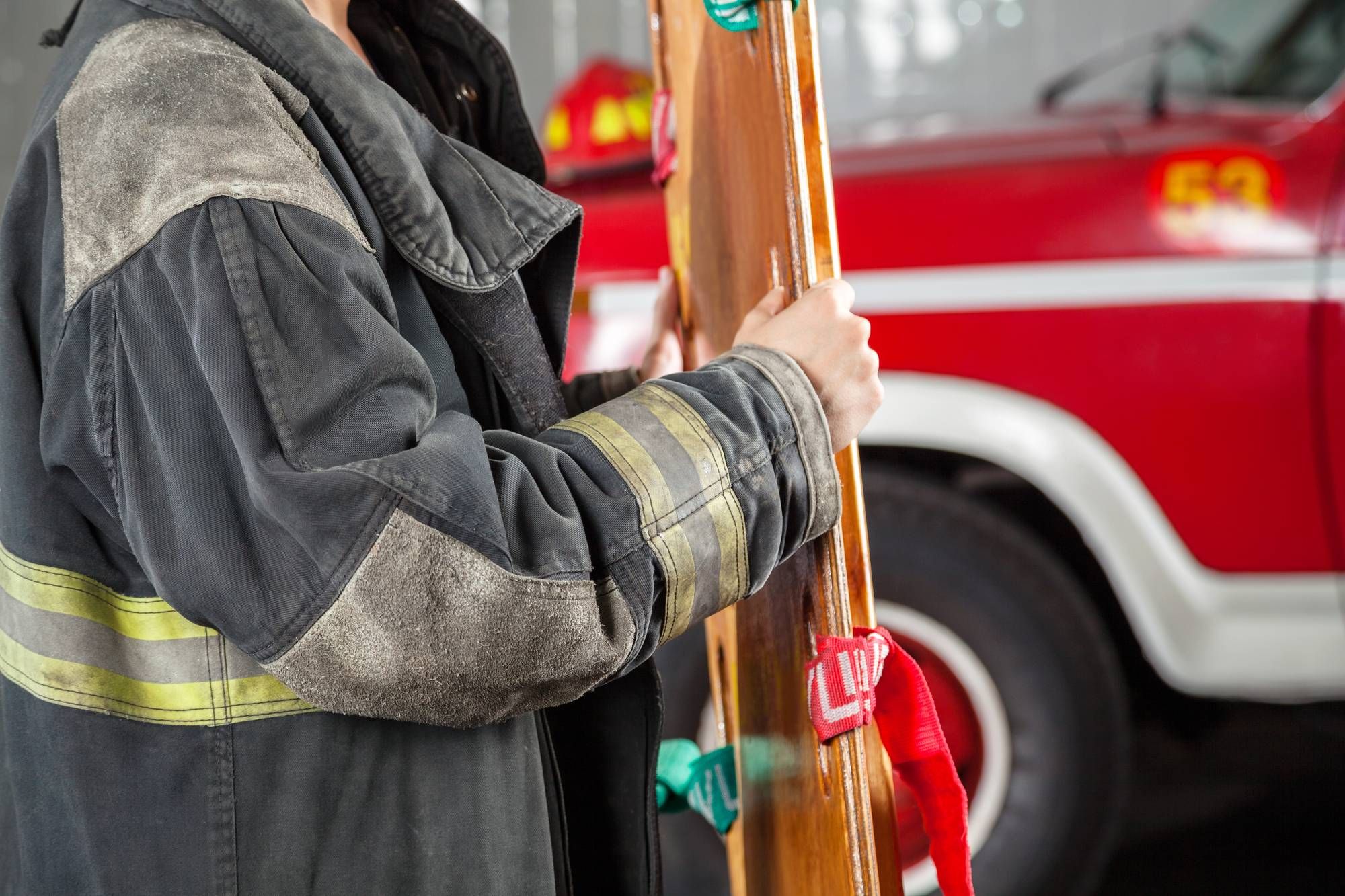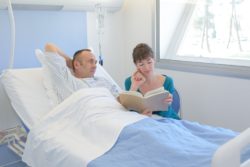Top Class Actions’s website and social media posts use affiliate links. If you make a purchase using such links, we may receive a commission, but it will not result in any additional charges to you. Please review our Affiliate Link Disclosure for more information.
The September 11th Victim Compensation Fund was created to compensate those affected by the Sept. 11, 2001, terrorist attacks. Specifically, the fund is meant to help 9/11 victims and their families pay for medical bills, lost wages, funeral expenses, therapy, and other expenses related to illnesses that stem from the fallout of the event.
Many 9/11 survivors have reported health problems that were latent for many years — including what’s come to be known as 9/11 cancer that takes years to develop. Such cancer is costly and often fatal. As diagnoses arise, victims are attempting to be compensated years after the attacks.
How Do the 9/11 Victim Compensation Fund Payouts Work?
Those wanting to file a Victim Compensation Fund (VCF) claim need to do several things.
First, they must have registered for the VCF program by July 2021. People were able to register for the program even if they did not suffer physical illnesses. Anyone who was present at Ground Zero and exposed to toxins is eligible to register. Registering allows people to file a claim if they develop an illness later.
Registering with the fund is not the same as requesting benefits. VCF policy states individuals do not have to file a benefits claim if they register, nor are they required to give up your rights to sue over an injury suffered. There is also a program to help survivors pay for medical care.
Who Is Eligible to Receive the Payouts?
Individuals may be eligible for a VCF payout if they suffered a physical injury from their presence at Ground Zero in New York City or one of the other attack sites — Shanksville, Pennsyvania, or the Pentagon — at some point between Sept. 11, 2001, and May 30, 2002.
Eligible individuals include those with a 9/11 cancer or another physical injury covered by the World Trade Center Health Program. In some instances, conditions not listed by the World Trade Center Health Program may be added if it has been verified the condition is related to 9/11. If this is the case, it will need to be verified by the Private Physician process of the Victims Compensation Fund.
Family members of deceased qualifying victims may also qualify for compensation. Similarly, a legal representative for a minor or incapacitated adult may also file claims on behalf of eligible victims.
Eligible injuries include those suffered during the attacks or right afterward. Over the years, it has become increasingly evident that the terrorist attacks have been associated with a range of hidden illnesses.
During the attacks, many toxins were released into the air and breathed in by people in the area. Buildings continued to smolder in the weeks afterward. Though the city initially deemed the air safe to breathe following the attacks, this turned out not to be the case, as the air was filled with toxic dust.
This dust likely contained dangerous toxins and carcinogens such as asbestos fibers, pulverized cement, glass particles, gypsum, drywall, and fumes from burning plastics, and jet fuel, according to Scientific American.
As the towers burned, a variety of construction materials and office supplies were destroyed, releasing particles and chemicals into the air, Scientific American reported. Heavy metals, including lead, used in building materials were melted and released poisonous gases. Even commonplace textiles such as carpeting or rugs may have contributed toxic fumes and particles into the cloud.
Other dangerous substances that may have been in the air plume following the attacks are unknown, as few samples were taken from the dust cloud. The testing performed on the air quality in the vicinity of the attacks indicated that the dioxin levels in the air were more than 100 times higher than those measured downwind of garbage incinerators. These dioxin levels were the highest ever recorded in the air.
Many first responders failed to wear equipment to protect them from inhaling the toxic dust. In addition to receiving conflicting information about the safety of the air, it may also have been difficult for emergency workers to communicate while wearing respirators and other protective apparatus. Many of these workers may have been unaware of the potential dangers of inhaling the dust.
According to a 2010 Centers for Disease Control and Prevention study, at least 12,000 9/11 responders were still experiencing breathing trouble years after their exposure to the fumes and dust. These individuals may be eligible to receive coverage through the September 11th Victim Compensation Fund.
Thousands of people have been diagnosed with 9/11-related illnesses years after the incident. These include a range of 9/11 cancers, respiratory problems, and other serious impairments. Now, individuals with 9/11-induced lung illnesses have a higher coronavirus risk to deal with, as well.
These Ground Zero illnesses have been progressively added to the Victim Compensation Fund coverage list.
How Much Compensation Has Been Issued?
The deadline to file a claim for the VCF has been extended, as lawmakers reckon with the fact that more people were harmed by 9/11 than initially thought.
In 2019, President Donald Trump signed into law a bill refunding and extending the September 11th Victim Compensation Fund. It will now pay out until 2092, effectively through the lifetime of all individuals impacted by the attacks. However, the deadline to register for the program is next summer.
Anyone who was exposed to toxins at one of the attack sites and later developed health complications is eligible to register but must do so by July 29, 2021, according to WCBS. Bereaved family members also have until July 29, 2021 to register with the program if a loved one died from a 9/11 illness. After this date, people must register with the program within two years of new illnesses or deaths.
The initial September 11th Victim Compensation Fund was meant to be in operation from 2001 to 2004, Vox reported. It served to compensate 9/11 victims and victims’ families who were physically injured or killed in the attacks.
However, numbers of first responders and victims continued to rise as the years passed, so when the James Zadroga 9/11 Health and Compensation Act was passed in 2010, the program was reinstated. The new fund was opened in 2011, funded with $7.3 billion, according to NPR. Since its 2011 opening, 21,000 claimants have received a total of $5 billion, but 19,000 more claims have been filed that have yet to be processed.
Fund administrator Rupa Bhattacharyya described to NPR the difficulty of anticipating how many claims would be filed, saying “from the very beginning, there has never been a good estimate of how many potential claimants there are, partly because there’s never been a good estimate of how many people were exposed, particularly in the New York City area.”
The Victim Compensation Fund administrator went on to point to the latency period of conditions like cancer in making projections challenging.
9/11 Victim Compensation Fund Essential During Coronavirus
Ground Zero workers, victims and their families have relied on 9/11 Victim Compensation Fund payouts for health care since the beginning. Though the VCF faced funding issues in 2019, it has been reauthorized indefinitely by Congress, WSHU reported. Experts say the funding is now even more essential to recipients as the coronavirus pandemic continues to rage.
Experts told WHSU that 9/11 survivors are more likely to suffer severe complications if they contract COVID-19. Indeed, those who were present at Ground Zero on the day of the attack or in the months afterward inhaled toxic fumes that affected their lung health. Because COVID-19 attacks the respiratory system, explained experts, it’s more likely that 9/11 survivors will need additional healthcare to combat the virus.
Of particular concern, notes WHSU, are survivors who have had to undergo chemotherapy to treat 9/11 cancer.
Experts have said that it’s doubly important for 9/11 survivors to follow all public health recommendations regarding masks, social distancing, and hygiene during the coronavirus pandemic.
VCF May Be Model for COVID-19 Essential Workers
Experts also told WHSU that the September 11th Victim Compensation Fund may be used as a model for a similar fund for essential workers who may have been exposed to the virus in the early days of the pandemic. Reportedly, these workers often had to go without the personal protective equipment necessary to avoid contracting the virus.
Similar to 9/11, governments reportedly failed to inform essential workers about the threat of coronavirus, much like 9/11 workers were told that Ground Zero was safe before toxins were removed from the area.
Free 9/11 Cancer Fund Claim Evaluation
Navigating the complex and burdensome paperwork and strict deadlines to participate in the 9/11 Victim Compensation Fund can be difficult. An experienced 9/11 Victim Fund attorney can help and ensure you get the maximum compensation available.
If you were present near Ground Zero, generally considered to be Lower Manhattan below Canal Street, between Sept. 11, 2001 and May 31, 2002, and were diagnosed with cancer four years or more after exposure (or one year or more for blood and bone cancers), you may qualify for compensation.
Submit your information now for a free, no-obligation review of your potential 9/11 cancer fund claim.
ATTORNEY ADVERTISING
Top Class Actions is a Proud Member of the American Bar Association
LEGAL INFORMATION IS NOT LEGAL ADVICE
Top Class Actions Legal Statement
©2008 – 2024 Top Class Actions® LLC
Various Trademarks held by their respective owners
This website is not intended for viewing or usage by European Union citizens.
Get Help – It’s Free
Free 9/11 Cancer Fund Claim Evaluation
If you qualify, a September 11th Victim Compensation Fund attorney will contact you to discuss the details of your potential claim at no charge to you.
PLEASE NOTE: If you want to participate in this investigation, it is imperative that you reply to the law firm if they call or email you. Failing to do so may result in you not getting signed up as a client or getting you dropped as a client.
Oops! We could not locate your form.














